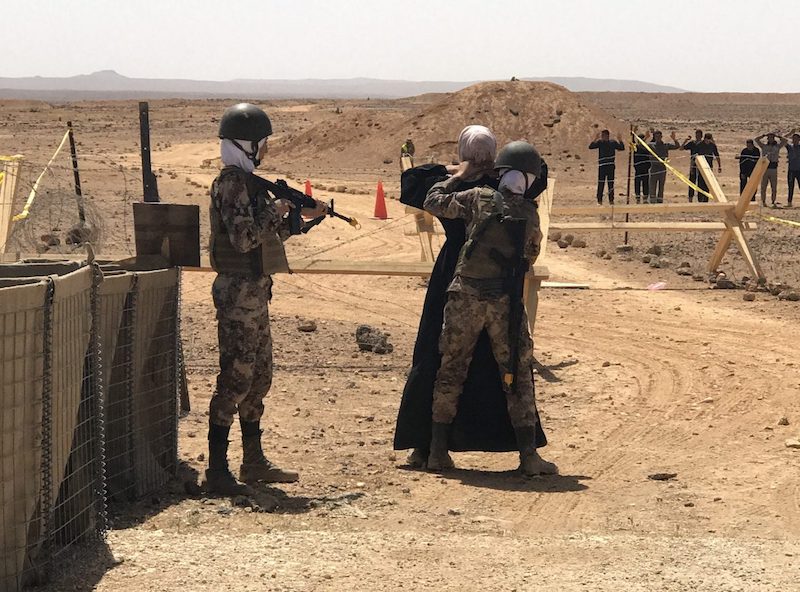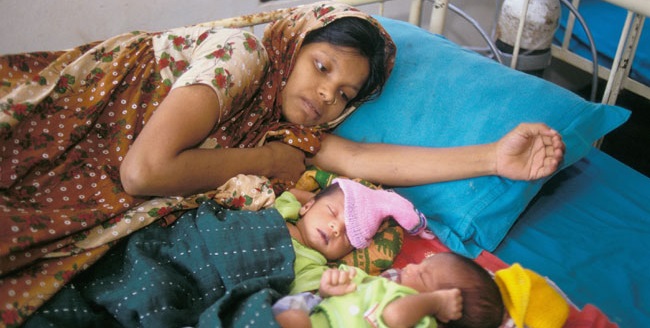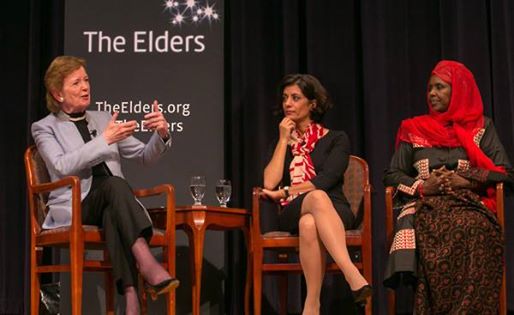In a country long dominated by patriarchy and male preeminence, one woman is making headlines as an adversary against the system of oppression. Rula Ghani is much more than Afghanistan’s new first lady: she is the voice of the nation’s female population, a voice which until now has been largely silent within Afghanistan’s political and social landscape. Lebanese-born with a Christian upbringing and elite French and American education, Ghani might seem out of place within Afghan politics. Her presence has elicited huge debate as the country recovers from strict Taliban rule, in which female education, employment, and activity outside of the household was once banned and subject to criminal punishment.

Following her husband’s inauguration on September 29, 2014, as the country’s twelfth president, Ghani has done in a matter of weeks what her predecessor had failed to do in years: take center stage during a public engagement. Sitting next to her husband, Ghani’s face remained visible to all, as she wore a simple headscarf rather than a traditional burqa.
Despite assuming the position of first lady only a few months prior, Ghani has already caused quite a stir, declaring that she sees herself as an advocate for women’s rights. A strong believer in female equality, having praised the French government for banning the burqa, Ghani cited the garment as limiting women from advancing within their society. “Regarding the French law against the niqab and burqa which prevent women from being able to move freely and see, because the niqab is a bit like blinders, I am in full agreement with the government of France,” she stated.
The debate over the burqa has been fraught with controversy, not only within the Middle East, but within Western society as well. When French president Nicholas Sarkozy initiated the country’s ban on the burqa in 2010, he declared that the covering “will not be welcome on the territory of the French republic,” unleashing a wave of enthusiastic support and enraging opposition in the process.
Those who agree with the decision made by the French government, argue that the burqa is a means of oppression; a tool used by men to assume a role of authority, to command obedience and exert influence, all while forcing women to be subservient, inferior, and prisoner to a code of conduct that does not value them as equal. Those in opposition cite religious intolerance, rather than social inclusion as a motivating factor behind the law.
If Ghani’s support of the ban is a contentious topic in the West, then it most certainly must be seen as inflammatory in Afghanistan. Before she is ripped apart for imposing a Western prejudice upon a largely religious society, it must be acknowledged that by inciting the debate over the appropriate attire for women, Ghani has simultaneously sparked the discussion regarding the appropriate treatment of Afghan women, and in doing so dismantling years of systematic oppression and violence upheld by the Taliban towards the country’s female population.
“Regarding the French law against the niqab and burqa which prevent women from being able to move freely and see, because the niqab is a bit like blinders, I am in full agreement with the government of France.”
Ghani’s opinion regarding the burqa should not be what defines her. Rather, she should be recognized for embracing a matter which is associated with so many interrelated issues, including the role of religion and the state; the state and the private matters of the individual; the position of women within their society; and the status of women vis-a-vis men. For a country which for years has been dominated by militia fundamentalism, these are the types of discussions Afghanistan needs to have.
It is alright if Ghani’s views are controversial or unpopular. It is the fact that she has so far been able to express them freely, that matters. Under Taliban rule, strict Sharia law dominated the political scene, preventing women from obtaining an education, seeking employment, venturing outdoors without a male relative, or from engaging in frivolous activities such as shopping, listening to music, or painting one’s nails. Following the dismantling of the regime, significant political and social improvements have been made. As of 2012, 2.9 million Afghan girls are enrolled in school, a staggering figure considering that the enrollment rate was at zero in 2001. Women in Afghanistan today make up over a quarter of all government employees, and are now being recruited into the country’s police and army forces. In 2009 the government passed a law, cracking down on violence directed against women.
While such advancements are promising, Afghanistan remains a battlefield for women hoping to improve their quality of life, which is why comments made by Ghani regarding their position in society, should be met with praise. Her critics should be free to cite her opposition to the burqa as being Islamaphobic, but they should not be free in preventing her from making such statements. Ghani’s comments are proof that the country’s recent democratic transition has some basis for legitimacy. She is able to openly question, defy, and criticize a practice which only a few years ago, would have resulted in her being subject to criminal punishment. Hannah Styffe




